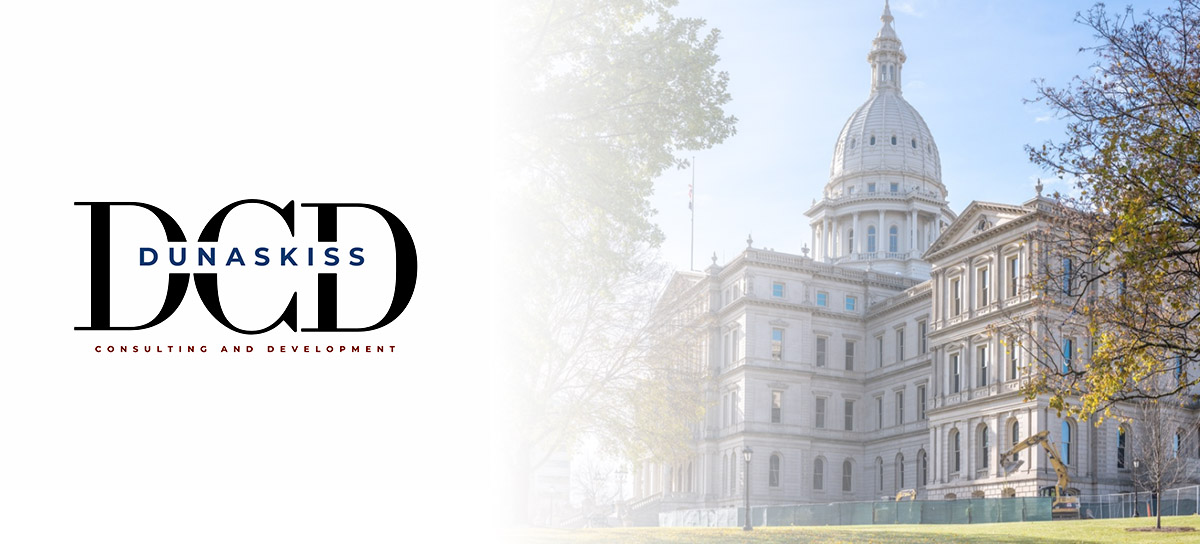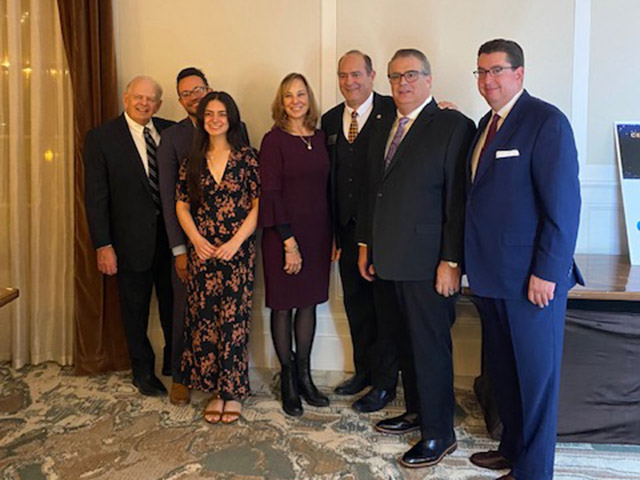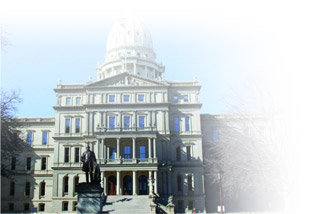
|
|||||||
|
Were Michigan to roll back the clock on the workers' compensation changes that then-Gov. Rick Snyder made in 2011, injured Michigan workers would get 80% of their after-tax wages, as was originally intended, Robert MacDonald, the past president of the Michigan Association for Justice told the press on Thursday. As it stands, injured workers need to clear a bunch of administrative hurdles to get a lot less, he said. Business owners and workers alike are hiring witnesses and experts to argue to a state arbitrator about whether there’s, at least in theory, a job the injured worker could perform. “It’s changed our lives dramatically,” MacDonald said. “Our clients used to get prompt, certain and sustaining benefits, let’s say $500 a week for somebody who used to make $800 a week. Now, our clients are told you’re only entitled to $100 a week because there’s a phantom job out there that you’re supposed to get.” MacDonald spoke during a House Labor Caucus press conference on a 15-bill package designed to level up the status of workers who are injured on the job. The 1912 workers' compensation system was the original grand bargain between employers and employees, where employees gave up the right to a jury trial for workplace injuries in exchange for prompt, certain and sustained workers regardless of fault. The U.S. Supreme Court ruled that for this agreement to be constitutional, workers must receive reasonable benefits if nobody could offer them a job they could do. In Michigan, the cap for benefits is $1,064 a week. However, the safety net, due to the 2011 changes, has “gaping holes” with the creation of what he called “phantom jobs.” Now, employers can get away with paying much less if it can prove that there’s a job category that the employee could perform. “Now benefits get slashed by phantom wages. Workers get fired. Workers are given a short list of jobs and told they’re on their own,” he said. But Brian Calley, CEO of the Small Business Association of Michigan and the lieutenant governor under Snyder, said going back to the pre-2011 reforms would be a “major disadvantage to small businesses” who were shouldered with workers' comp fees that were not competitive when stacked up with other companies. “The reason retaining the current system is important is that the workers' compensation system is not meant to be a permanent replacement for work,” Calley said. "It's a bridge that covers costs until whatever is possible in the future. That's what makes it sustainable and affordable to operate for small businesses. “It simply establishes an expectation that people return to work, even though it might be a different type of work,” he said. Calley said the workers' compensation system is not built to be maintained as a benefit existing in perpetuity if there are other job options out there for the worker to perform. Also, the Michigan Chamber of Commerce made it clear it will “continue to defend Michigan’s workers’ compensation law as written, and would strongly oppose repeal of the 2011 reforms.” Chamber Vice President Wendy Block said the 2011 reforms were designed to carefully balance adequate benefits for injured workers with the need to control costs for employers. The 2011 changes reduced workers' comp premium rates every year from 2011 to 2018, which allowed job providers to invest more in their employees and their businesses, she said. She quoted the former Workers' Compensation Agency from 2015-2020 who said about the 2011 reforms, “These tremendous economic savings experienced by employers allow them to hire more workers, increase salaries, open new facilities and move to Michigan. Our sustained workers’ comp decreases play an important role in the state’s regulatory environment, which continues to attract businesses and add jobs.” The House Labor Caucus held a press conference on the workers' compensation bills and other pro-labor bills that included the following: HB 5177, HB 5178, HB 5179, HB 5180, HB 5181, HB 5182, HB 5183, HB 5184, HB 5185, HB 5186, HB 5197, HB 5188, HB 5198, HB 5190 and HB 5191. Among those who attended the press conference were Reps. Joey Andrews (D-St. Joseph), Brenda Carter (D-Pontiac), Tyrone Carter (D-Detroit), Jennifer Conlin (D-Ann Arbor), Sharon MacDonell (D-Troy), Denise Mentzer (D-Mount Clemens), Reggie Miller (D-Belleville), Natalie Price (D-Berkley), Carrie Rheingans (D-Ann Arbor), and Regina Weiss (D-Oak Park).  Nuclear Energy Tax Credits, Grant Programs Pass House Nuclear Energy Tax Credits, Grant Programs Pass House
The House passed on Tuesday a package of bills that provide tax credits to developers of advanced nuclear reactor technologies and create grants for nuclear and hydrogen postsecondary programs. HB 4124, sponsored by House Energy Committee Chair Pauline Wendzel (R-Watervliet), creates a 15% tax credit for taxpayers against the corporate income tax and employers against tax withholdings for research and development expenses incurred in Michigan, starting in 2026. A person could claim both tax credits, but not for the same expenses, and the aggregate amounts are capped at $2.5 million per year. It passed, 78-26. “For two and a half years, we’ve worked to get here. We’ve listened, we’ve negotiated, and we’ve built a coalition that reflects the very best of Michigan, workers and engineers, business and labor, Democrats and Republicans, all united around a shared goal to make Michigan a leader again,” Wendzel said in a floor speech. HB 4125 and HB 4126 , sponsored by Reps. Mike McFall (D-Hazel Park) and Samantha Steckloff (D-Farmington Hills), would have the Department of Labor and Economic Opportunity (LEO) award grants to postsecondary institutions that give degrees or credentials in the nuclear or hydrogen industry and give scholarships to students who commit to at least three years of employment in Michigan in a nuclear or hydrogen energy facility upon graduation. They passed 80-24 and 82-22. HB 4127 introduced by Rep. Jamie Thompson (R-Brownstown) defined advanced nuclear reactor technologies. It passed, 85-19. Thompson said of the tax credit and grant programs that her district is ready to take the lead. Thompson said one of the biggest hurdles for nuclear energy generation is the cost, and these bills can create thousands of high-paying jobs in manufacturing, construction and engineering. HB 4128, introduced by Rep. Greg VanWoerkom (R-Norton Shores), provides a tax credit against a nuclear energy producer’s CIT based on their sale of electricity that is generated using small modular nuclear reactors. The credit would be $1 for each kilowatt-hour of electricity produced. It passed, 78-26. HB 4129 from Rep. Joey Andrews (D-St. Joseph) creates an attraction and retention program that gives grants for postsecondary graduates that work at a nuclear or hydrogen technology facility in Michigan. They would qualify for grants whether they got their relevant degree in Michigan or not. It passed, 84-20. Andrews said in a floor speech that as energy costs rise, it’s hard to say that nuclear technology shouldn’t be at the forefront of their efforts to modernize the grid and reduce carbon emissions. “These bills present us with the ability to maintain and retain (our) workforce. The investment that we're making through our universities shouldn't go to benefit another state," Andrews said. “It should stay here in Michigan. So, through these smart tax credits, we can incentivize our workforce to stay in Michigan and even steal the workforce that's being trained in our neighboring states of Ohio and Indiana and bring them to Michigan to work in our nuclear and hydrogen facilities.”  As Insurance Rates Rise, Group Says Policy, Industry Need to Rein in Costs
As Insurance Rates Rise, Group Says Policy, Industry Need to Rein in Costs
As the newest rate changes for health insurance plans were approved Friday, the head of the Michigan Health and Hospital Association said there is plenty the health care sector and policymakers can do to rein in ever-rising costs. On Friday, the Department of Insurance and Financial Services issued its approved 2026 health insurance rate change requests. For the individual market with a statewide enrollment of more than 532,000, the average increase among insurers was 20.2%. The average increase for insurers offering plans within the small group market that has an enrollment of more than 412,000 was 11.1%. "Affordability is an incredibly important topic," Michigan Health and Hospital Association CEO Brian Peters said on Friday. "We're very concerned with affordability being in question and we might see the end of the premium tax credit." When people see double-digit premium hikes, some may opt to go without coverage or enroll in "skinny" health plans that do not cover people with preexisting conditions and may not cover some basic services, he said. A fight over whether to extend the enhanced tax credits for the Patient Protection and Affordable Care Act, which are set to expire at the end of the year, is a central issue in the ongoing federal government shutdown. Democrats want to have the credits extended as part of a funding deal to reopen the government and Republicans say it should be addressed once the government is reopened. The expanded credit was created through the American Rescue Plan Act of 2021. Earlier this month the Senate Health Policy Committee took testimony on the effects of the enhanced tax credit going away. It is estimated that tens of thousands of Michigan families will lose health care coverage. If the enhanced tax credit is allowed to expire, people could see even larger rate hikes, officials have said. "We own our share of the affordability crisis," Peters conceded Friday while adding that hospitals are not solely responsible for health insurance rate increases. Peters pointed to sharp spikes in prescription drugs, a high population of sicker patients and administrative expenses. Cost increases at hospitals in recent years stem from several sources, he added. Chief among them are labor costs, which have grown since the coronavirus pandemic. Prescription drug costs have been a factor as have moves toward newer technologies. There are things that can be done to rein in cost increases, Peters said. "Extension of the premium tax credits would go a long way," Peters said. He said the projected state cost increases under federal tax law changes over the coming decade was another major concern. "It's really a double-whammy from a financial perspective," Peters said of the federal law changes to Medicaid and the possible expiration of the ACA tax credits. DCD OUT & ABOUT
Senator Mat Dunaskiss and Diane Dunaskiss recently attended an Indian Diwali Celebration at the Hindu Temple in Canton where Hema Rachmale (wife of DCD client Avinash Rachmale of Lakeshore Global Corporation) was presented with and award for her ongoing service and commitment to the Indian community.
Senator Mat and Jake German also recently attended Common Ground's "Celebration of Hope" Gala at the Royal Park Hotel in Rochester, where over $140,000 was raised to help those in Oakland County and throughout the State of Michigan who are suffering from mental health crisis issues. DCD IS A FULL-SERVICE, BI-PARTISAN, MULTI-CLIENT LOBBYING FIRM REMEMBER ALL OF DCD'S SERVICES: ARTICLES OF POLITICAL INTEREST:
Michigan Open Enrollment: Here’s How Much Health Insurance Rates Are Rising Michigan Elections: Detroit Mayor, 48 School Bonds, And More. What To Know. Tech Giants Announce $7B Data Center; Michigan’s First Hyperscale Campus Michigan Proposal Would Move Election Dates, Eliminate August Primary Michigan Republican Governor Hopefuls -Without James- Debate in Sparta Marijuana News, Updates, & Articles of Interest
We are here to help you with: municipal lobbying, license application writing and assistance, business plans, state required operations manuals and compliance, facility design, corporate structure, and design and branding. We are experts in both medical and recreational cannabis policy and have been in the space for over ten years. We welcome any opportunity to work with you in the future! ARTICLES OF CANNABIS INTEREST: Michigan is Becoming a Haven for Illegal Marijuana. Lawmakers Hope to Change That. Michigan Cannabis Industry Fights to Block 24% Cannabis Tax Michigan Senate Panel Considers Requiring Cannabis & Tobacco Flyer for Students Marijuana Dispensary Caught Giving Away Thousands of Grams of Concentrate Under Fake Name U-M Study: 1 in 5 Students Use Marijuana or Alcohol to Fall Asleep Doing Things Differently DCD is rebranding, and our bottom line is your bottom line. We are striving to create and foster strong relationships with clients and lawmakers, deliver results with strong ethics and class, but above all else, out-hustle and out-smart our competition every day to be the very best. We’re making chess moves while others are playing checkers. Everything we do is with you in mind, we’re doing things we’ve never done before and aggressively pursuing opportunities. The time is now. DCD has taken our firm to the next level and your involvement and investment paired with our knowledge and expertise is going to launch the great state of Michigan forward. |
|||||||
|
|||||||

Contact Us
Address
Phone
Copyright © Dunaskiss Consulting and Development Inc.

 House D's Want To Roll Back 2011 Workers Comp Reforms
House D's Want To Roll Back 2011 Workers Comp Reforms 



 THE DCD MARIJUANA TEAM: YOUR COMPETITIVE EDGE!
THE DCD MARIJUANA TEAM: YOUR COMPETITIVE EDGE!











